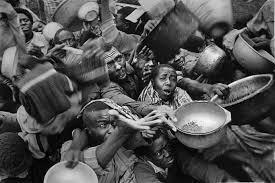 The global population living in extreme poverty has risen in the last 20 years – indeed has almost doubled – say two-thirds of Americans in a recent survey. Nearly all the rest guessed poverty has merely stayed the same.
The global population living in extreme poverty has risen in the last 20 years – indeed has almost doubled – say two-thirds of Americans in a recent survey. Nearly all the rest guessed poverty has merely stayed the same.
“Rising poverty” is a pessimist idee fixe, so ubiquitous that most folks unthinkingly consider it an obvious truism, to be sanctimoniously deplored. I have actually seen people’s eyes sparkle when talking of “rising poverty;” puffing up one’s moral vanity feels good.
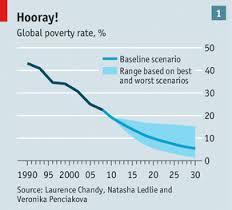
This little known secret was revealed by Nicholas Kristof in a recent New York Times op-ed, citing World Bank figures: since 1993, the proportion of world population living in extreme poverty (defined as earning less than $1.00-$1.25 daily) fell by more than half, from 35% to 14%. Adding insult to injury, Kristof also noted the child death rate, before age five, dropped by more than half since 1990.* And whereas in the ‘80s only half of girls in developing countries completed elementary school, now 80% do. Literacy is rising and disease rates are falling. And so on. (Bill and Melinda Gates similarly argued in the Wall Street Journal in 2014 that pessimists are wrong and global conditions are improving markedly.)
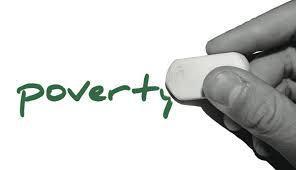
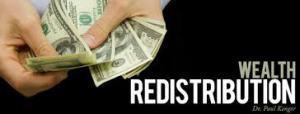
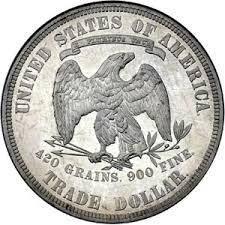
Further illuminating what is happening and why, author Ronald Bailey provided a commentary (on Reason.com) on Kristof’s piece. What has enabled many developing countries to improve by taking advantage of global trade opportunities is better economic policies – in a nutshell, more economic freedom for their people to do so – phasing out dysfunctional old socialist nostrums (this is the “neoliberalism” lefties condemn). Bailey cites a 2015 Fraser Institute report giving countries economic freedom ratings, based on various measures. The 102 countries continuously rated averaged 5.31 in 1980, rising to 5.77 in 1990, 6.74 in 2000, and 6.86 in 2013.
Bailey notes that such economic freedom, and its handmaid, rule of law, tend to flourish in politically and economically stable countries. And it should be no surprise that all those conditions combine to unleash human ingenuity and enterprise, creating wealth and reducing poverty. Bailey also cited data showing that such nations tend to have markedly reduced fertility rates (thus controlling population growth), better environmental stewardship, and higher life expectancies than in more repressive and misgoverned lands.
Bailey concludes by saying that it is in “democratic capitalist countries that the air and water are becoming cleaner, forests are expanding, food is abundant, education is universal, and women’s rights respected.”
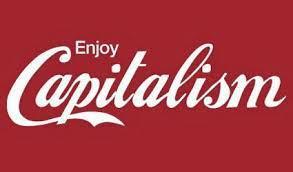
(All of this was already covered in my own very excellent 2009 book, The Case for Rational Optimism. I thank Scott Perlman for pointing me to the cited articles.)
*Meantime, Bernie Sanders saying America has the world’s highest child poverty rate is ridiculous. We measure it in relation to average U.S. incomes – which top worldwide scales. Of course child poverty is much worse in many countries that still are much poorer.
